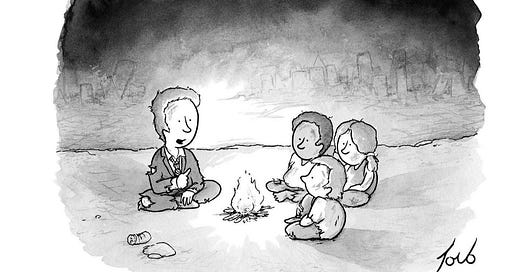I have to admit that before April of 2014 when Flint, Michigan revealed that its water pipes were delivering toxic levels of lead to residences, I didn’t pay much attention to environmental inequality. Flint is the archetypal Midwestern blue collar manufacturing town. It lives in Detroit’s shadow, and its fortunes go up and down with the automobile industry. I’m originally from Ohio, so the stark images of a Rustbelt town in decline weren’t exactly surprising to me, but the callousness of the officials who sent Flint into a two-year health crisis by deciding wrongly to switch its water source from Lake Huron to the Flint River to save money, really floored me. The Flint River is a more variable water source that is difficult to treat, and the switch was made without the necessary corrosion control treatment that would prevent lead pipes from breaking down.
The crisis lasted until June 2016 and exposed tens of thousands of Flint residents to dangerous levels of lead. It also led to outbreaks of Legionnaire disease, which killed at least 12 people and sickened many more. In January 2016, the governor declared a state of emergency in Flint and asked the Obama administration for more federal aid. In February 2017, the Michigan Civil Rights Commission issued a report that found "systemic racism" was at the core of the problems that caused the water crisis. Flint is predominantly a Black community (56.3%), with a third of its population living below the federal poverty line; one of the higher rates in the nation.
The shocking reveal that its 100+ year-old municipal water system was tainted, made me blanch, but the fact that it took over two years to fix, made me angry. Then I realized it’s not just Flint. We think nothing of dumping on, flooding, and poisoning the communities that can’t afford to fight back.
I began to think about Houston, where the poor (mostly Black and Hispanic) neighborhoods are low-lying and subject to terrible spring flooding, now compounded by climate change. Depending on the wind, the air quality from the numerous petrochemical plants and refineries is atrocious. The Houston Chronicle says the area ranks 44th in air quality. It is regionally bad, but the plight of neighborhoods on the “wrong side of the tracks” in Houston, just like Katrina-ravaged New Orleans, gave me pause. And also like New Orleans and countless other places, the wealthier denizens move upwind and to higher ground—places the poor people can’t afford to go. Out of sight, out of mind.
Ultimately, I had to look no farther than my own backyard, where for decades the Tijuana River has spewed human feces and other untreated pollutants into the Pacific Ocean where the current carries them north to the southern-most beach community in California, Imperial Beach. It is a state and national shame that we have what is essentially an open sewer at our southwestern border. Around these parts, that is the border crisis.
As of this writing, Imperial Beach’s waters have been closed for 900 days. That’s right: it’s been two and half years since residents and tourists have been able to fish, swim, or surf in our waters. It’s an ongoing crisis that is complicated by an international border and inadequate or broken water treatment systems on both sides that have suffered from years of neglect.
This national tragedy wasn’t on anyone’s radar in California or in Washington, D.C. To this day, our governor refuses to declare it an emergency (that would free up state funds for remediation), saying it is a federal problem. For their part, the feds—have you seen our Congress?—until very recently wouldn’t spend the money to fix what we have, let alone build new.
It was only when the more affluent beach community of Coronado started regularly closing its waters that the crisis got broad attention. My wife, a sustainability and marketing and communications expert, and a few of her friends, sprang into action and formed a nonprofit called StopTheSewage.org to shake up the status quo.
Preceding their efforts, years of complaints from Imperial Beach had garnered no attention. When Stop The Sewage teamed up with the irrepressible mayor of Imperial Beach, and other area electeds to hold a press conference in tony Coronado, the sewage problem began to receive widespread attention. A true fix is still years, and hundreds of millions of dollars away, but when the two communities combined their efforts—and suddenly were unavoidable online and on all the local TV stations—Congress, thanks to lobbying efforts in DC by leaders and citizens of Imperial Beach and Coronado, allocated $151M to start repairs. Fear of losing convention and tourist business still keeps Coronado from joining neighboring communities in declaring a state of emergency.
Money talks.
©2024 Jon Sinton





Keep up the good fight, although I would’ve called the political organization “shitizens United”